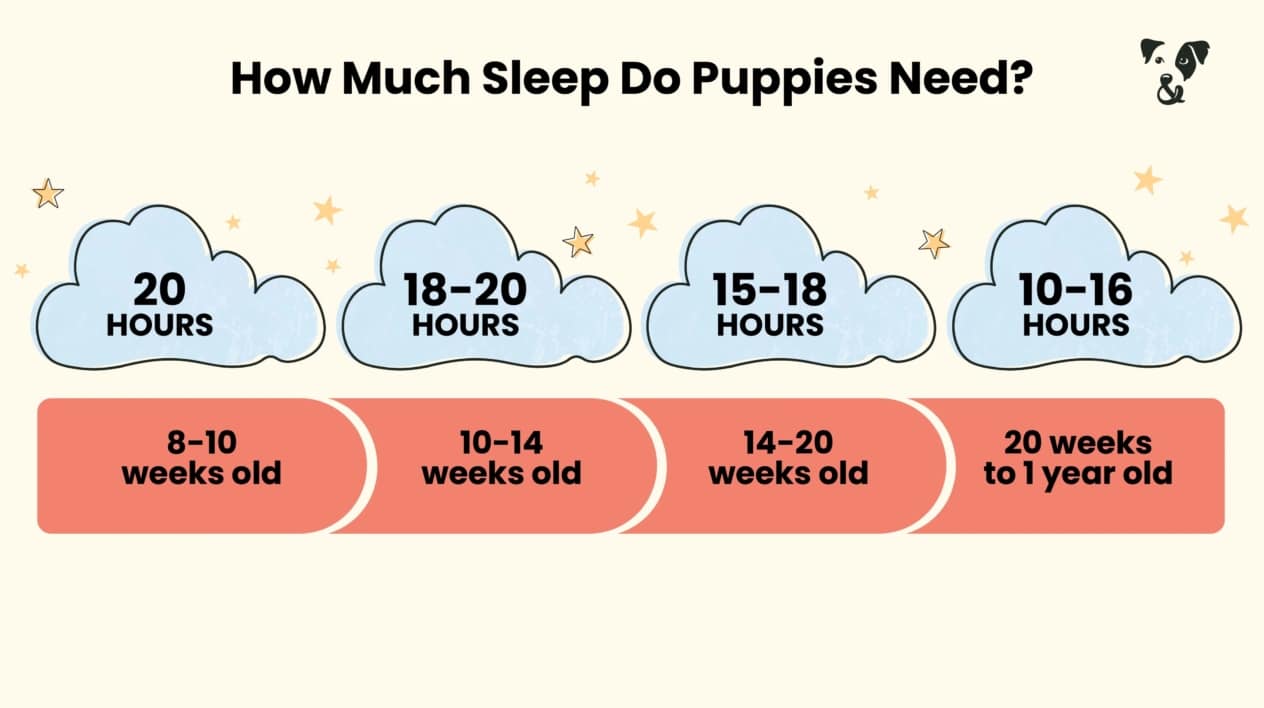Sleep is one of the main indicators of a dog’s health. It affects mood, immunity, digestion, concentration and even behavior. But exactly how many hours your pet should sleep depends on age, activity, breed and living conditions.
How much sleep is normal for a dog
On average, a healthy adult dog sleeps 12 to 14 hours a night. Large breeds, which have a slower metabolism, often sleep more, up to 16 hours. Smaller ornamental breeds may sleep less, but are more likely to nap during the day.
Puppies and older dogs need significantly more sleep:
Puppies – 18 to 20 hours a night, because the body is actively growing.
Older dogs – about 16 to 18 hours, because their metabolism slows down and their energy recovery is slower.

If the dog is sleeping too little
Sleep deprivation in dogs is similar to that of humans: the animal becomes irritable, anxious or apathetic. Appetite may decrease, concentration may deteriorate, and aggression may appear without reason. The causes may vary from a noisy environment to health problems or pain that prevents relaxation.
If your dog sleeps less than 10 hours a night and looks tired, it’s worth looking at their environment – perhaps they need more walks, fewer stimuli or a more comfortable place to sleep.
If the dog sleeps too much
Excessive sleepiness (more than 18-20 hours in an adult dog) can be a red flag. Animals behave this way in case of thyroid disorders, infections, heart disease or chronic pain. Sometimes the cause is simple – boredom or lack of exercise.
But if the dog sleeps too long, loses interest in food or games, or becomes lethargic, you need veterinary advice.
When to see a veterinarian
If you notice that your pet is suddenly sleeping much less or more than usual, or has changed habits, it’s time to consult your veterinarian. Excessive fatigue, restlessness, sudden changes in appetite or decreased activity may be the first signs of illness.











